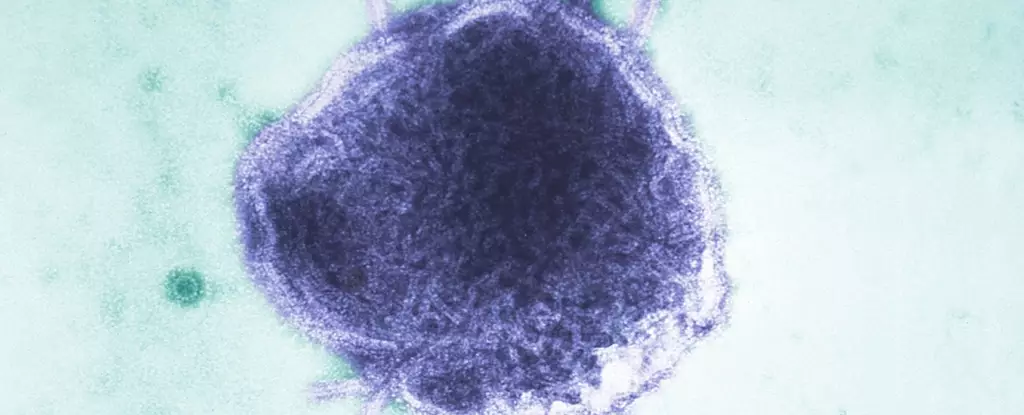The alarming resurgence of measles is a stark reminder of the vulnerabilities we face in public health. In 2025, unprecedented outbreaks across North and South America, along with Europe, have reignited fears of this once-eliminated disease. With cases soaring to levels not seen in decades, the reality is that measles—a highly contagious and dangerous virus—has reasserted itself as a significant health threat. Recent statistics illustrate this distressing trend, with North America witnessing an astonishing elevenfold increase in cases compared to the previous year, while Europe registers its highest infection rates in 25 years.
The United States, which declared measles eliminated in the year 2000, is grappling with this resurgence too. As of early May 2025, there have been reports of 935 cases spanning 30 states—significantly higher than the 285 cases documented in 2024. Moreover, Texas has emerged as a focal point for the outbreak, accounting for 702 confirmed infections, alongside troubling reports of hospitalizations and fatalities, including the tragic loss of two children. This rise is not an isolated incident; similar patterns are unfurling across borders, as Canada reports more than 1,000 cases linked to outbreaks that have spread across several provinces.
The Role of Vaccination
The critical question that arises amid this public health crisis is how we reached this juncture. The answer lies primarily in decreased vaccination rates. The measles vaccination, a cornerstone of public health policies for decades, is instrumental in preventing the spread of this highly contagious viral infection. The MMR (measles, mumps, and rubella) vaccine, made available to the public in the early 1970s, played a pivotal role in reducing measles cases from millions annually in the early 20th century to virtually zero by the turn of the century.
However, vaccination hesitancy, exacerbated by misinformation and distrust, has undermined decades of progress. Vaccination rates, having peaked in the late 20th century, are now on a worrying decline. Factors such as the COVID-19 pandemic, which restricted access to healthcare providers and vaccination services, further complicated these trends. Health experts warn that a critical threshold must be met to maintain herd immunity, which requires approximately 95% of the population to be vaccinated. Unfortunately, many communities, particularly in areas with lower vaccination coverage, are now vulnerable.
The Toxic Cocktail of Misinformation and Hesitancy
The factors contributing to the resurgence of measles are multifaceted, entwined with broader societal issues surrounding vaccine hesitancy, skepticism towards health authorities, and the impact of misinformation campaigns. Social media has become a double-edged sword in this context, enabling the rapid spread of both accurate health information and dangerous myths regarding vaccines. This misinformation has fueled fears that have led a segment of the population to reject essential vaccinations for their children, putting entire communities at risk.
The consequences of hearing disinformation over trusted medical advice can be catastrophic. Public health officials are now confronting a very real possibility: the return of measles as an endemic virus in the United States and beyond. Studies project chilling outcomes if current trends continue, with the potential for millions of cases to emerge over the next couple of decades. These predictions underscore an urgent need for effective public health strategies focused on restoring trust in vaccines, ensuring accessibility, and counteracting fear with factual information.
Global Collaboration and Policy Implications
Amidst this alarming variant of a historical public health scenario, the need for coordinated global efforts becomes critical. No nation is an isolated island when it comes to infectious diseases; outbreaks in one country frequently spill over to others, necessitating a global response. The World Health Organization has labeled both North and South America as high-risk areas for measles—a clarion call for nations to bolster their public health infrastructure and vaccination programs.
Strategically, public health officials must engage in comprehensive initiatives aimed at enhancing community outreach and education surrounding vaccines. By working with trusted community leaders and healthcare workers, they can help dismantle the barriers of skepticism and mistrust that inhibit vaccination. Moreover, sustained investment in equitable access to vaccines is crucial to ensure that every child is protected against this infectious threat.
In light of the current trajectory of measles outbreaks and disruptions to vaccination programs globally, the response must be not just reactive but proactive. It has never been clearer that prevention is essential in the battle against resurgent infectious diseases, and a collective commitment to maintaining high vaccination rates can be the shield that protects communities from the viruses they once thought they had eradicated.


Leave a Reply